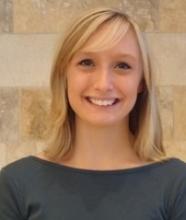I am currently working in the Koopman laboratory looking at the melting points of biological lipids. My samples consist of purified lipids extracted from the acoustic fats of diving mammals, such as the pygmy sperm whale and Cuvier’s beaked whale. Melting points for these tissue samples are currently unknown. My research aims to provide data that can later be used to look at potential trends in melting point based on dive depth, wax ester content, and/or nitrogen solubility.
UNCW has a wonderful database of professors listed on the department websites where you can view a professor’s area of study and the research they conduct. When I really became serious about getting a position in undergraduate research, I began reading through these research areas and stumbled upon Dr. Koopman’s research interests. At the time, I wasn’t looking to get involved with her lab, but emailed her to ask her more about her research and her laboratory. She emailed me back offering me an interview to work in the lab and I gladly accepted. After accepting the position I was hoping to get more experience working in a less structured laboratory setting and increase my technical skills in biology. I also wanted the opportunity to apply the knowledge I had acquired in class to a setting that challenged me because it is my responsibility to apply my learning.
From working in Koopman's lab I have gained a greater understanding of how to conduct a more indiviualized research experience and how to troubleshoot problems that will arise when conducting research for the first time. The most challenging aspect was determining the correct and most accurate methodology for my study that made it consistent and not too subjective. I learned that the two key factors to good methodology is repeatability and careful note-taking to ensure that anyone attempting to perform these methods after me will understand how to conduct the experiment properly.
Having the opportunity to be engaged in undergraduate research will make me a more viable candidate for graduate study because I not have a specified skill set and a familiarity with how to perform work in a laboratory setting and with other people working in research of the same field. Graduate schools want to see that you have applied your knowledge within your field of study and that you feel comfortable working on a project that is not as structured and "guaranteed" as the labs performed in classes. Working in a lab has given me a very specified skill set within the broader necessities that make a good researcher.





